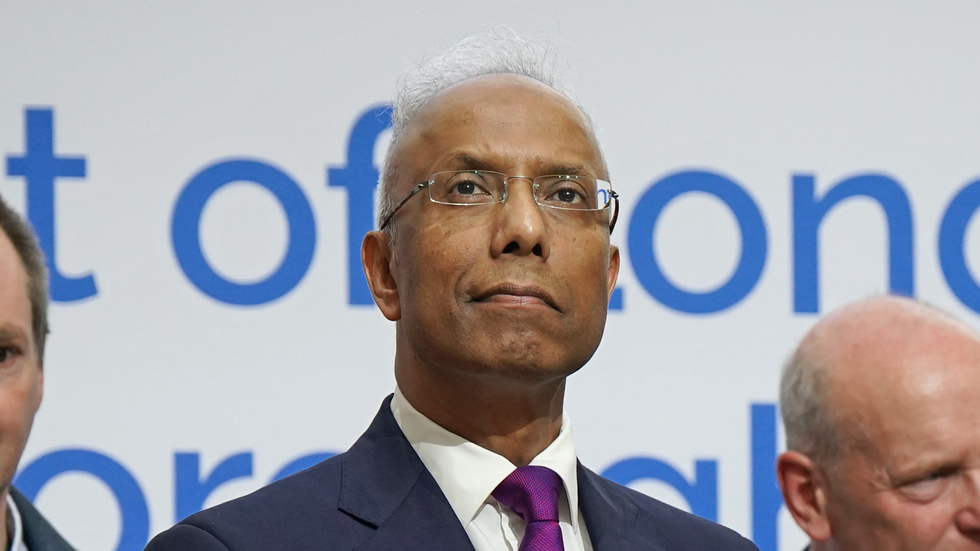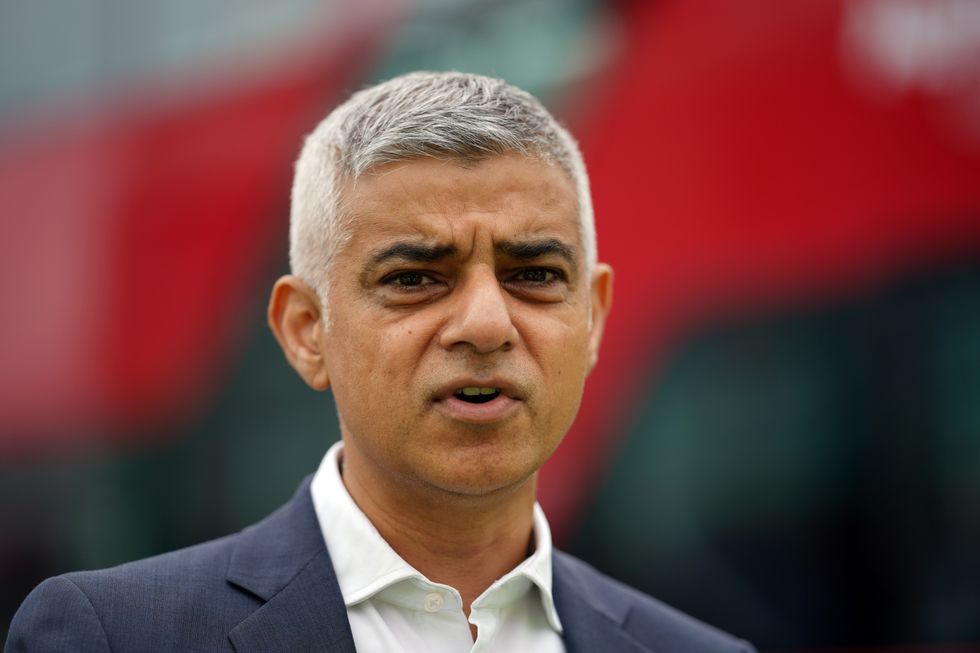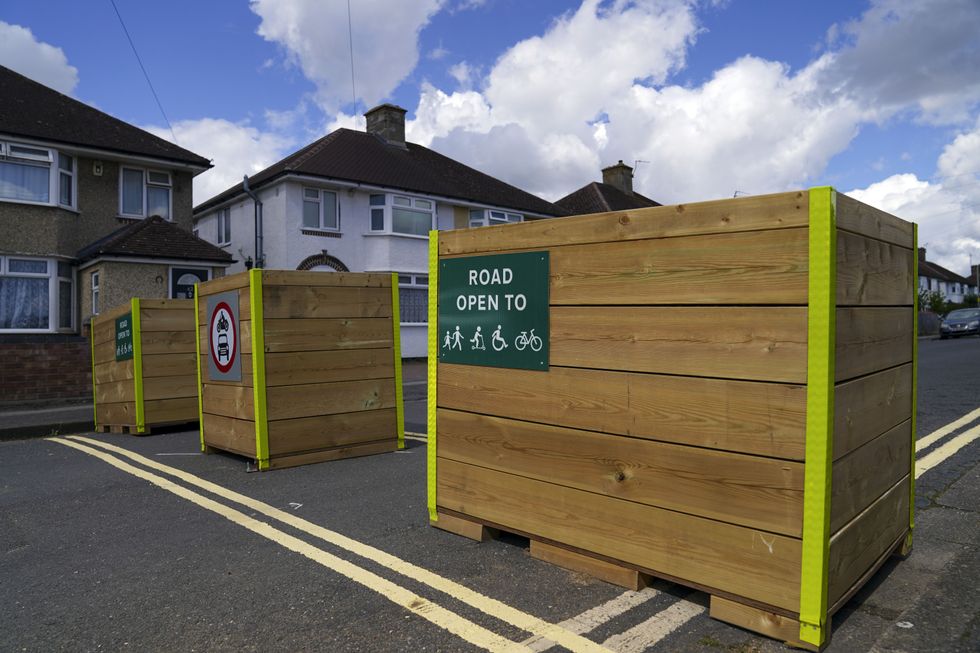James Saunders
Guest Reporter
Sadiq Khan has been dealt a hammer blow after a High Court judge ruled that councils can legally remove controversial low-traffic neighbourhoods (LTNs) without his sign-off.
The decision - to let Tower Hamlets Council remove three LTNs in Bethnal Green in east London - came after campaign group Save Our Safer Streets (SOSS) butted heads with Tower Hamlets Mayor Lutfur Rahman over his plans to scrap the schemes.
The ruling, delivered on Tuesday, confirmed that the council had followed proper procedures in its decision to remove the LTNs, which had been implemented by the previous Labour administration.
Mayor Rahman, whose manifesto pledged to scrap the LTNs, welcomed the High Court's ruling, saying: "We had a responsibility to fulfil the democratic mandate from voters in the May 2022 election to reopen these three roads."

The decision marks a significant victory for Rahman's administration, which had faced opposition from Transport for London (TfL), local NHS trusts and five local school headteachers who had written an open letter urging him to maintain the restrictions.
Rahman also cast down the previous Labour council's "botched" LTN scheme for causing significant traffic problems across the borough.
"While LTNs improve air quality in their immediate vicinity, the previous Labour administration's botched implementation of LTNs in Tower Hamlets caused traffic congestion on main roads," he said.
He said this led to increased air pollution complaints and negative health impacts, particularly affecting working-class households living along the same main roads.
LATEST ON LONDON'S TRANSPORT WOES:

But SOSS campaigners weren't so sure - the group's Jane Harris said: "Our low traffic neighbourhoods are a major success story in a deprived area of London, virtually eliminating serious road injuries and improving air quality inside and outside the schemes."
She added that the proposal would be "expensive and unpopular" while harming residents' health and safety.
Harris noted that the case focused solely on the legality of the decision rather than its merits, saying: "The judge himself said that this case was not about the rights and wrongs of removing the scheme."
Campaigners have warned that the court's decision could have wider implications for similar traffic schemes across London - for which the Mayor has long advocated.

And SOSS now has until January to decide whether to submit an application to the Court of Appeal. "Our legal team has told us that we have grounds for an appeal. We are raising funds again and we hope people will continue to support us," Harris said.
Hundreds of LTNs have been introduced in the capital since the beginning of the scheme, while TfL has provided councils with funding for even more.
In summer 2024, TfL's latest annual progress report said that LTNs "remain a key part of the Healthy Streets approach" in London, and vowed to "continue to support" boroughs implementing the traffic zones.
Find Out More...
The decision - to let Tower Hamlets Council remove three LTNs in Bethnal Green in east London - came after campaign group Save Our Safer Streets (SOSS) butted heads with Tower Hamlets Mayor Lutfur Rahman over his plans to scrap the schemes.
The ruling, delivered on Tuesday, confirmed that the council had followed proper procedures in its decision to remove the LTNs, which had been implemented by the previous Labour administration.
Mayor Rahman, whose manifesto pledged to scrap the LTNs, welcomed the High Court's ruling, saying: "We had a responsibility to fulfil the democratic mandate from voters in the May 2022 election to reopen these three roads."

The decision marks a significant victory for Rahman's administration, which had faced opposition from Transport for London (TfL), local NHS trusts and five local school headteachers who had written an open letter urging him to maintain the restrictions.
Rahman also cast down the previous Labour council's "botched" LTN scheme for causing significant traffic problems across the borough.
"While LTNs improve air quality in their immediate vicinity, the previous Labour administration's botched implementation of LTNs in Tower Hamlets caused traffic congestion on main roads," he said.
He said this led to increased air pollution complaints and negative health impacts, particularly affecting working-class households living along the same main roads.
LATEST ON LONDON'S TRANSPORT WOES:
- TfL may be forced to pay millions in wrongly issued Ulez fines to drivers - 'We suspected something was not right'
- 'Vanity project!' Sadiq Khan blasted for 'squandering hard-earned cash' on woke Overground rebrand
- TfL launch urgent probe after tube driver boasted of performing sex act on colleague between stations

But SOSS campaigners weren't so sure - the group's Jane Harris said: "Our low traffic neighbourhoods are a major success story in a deprived area of London, virtually eliminating serious road injuries and improving air quality inside and outside the schemes."
She added that the proposal would be "expensive and unpopular" while harming residents' health and safety.
Harris noted that the case focused solely on the legality of the decision rather than its merits, saying: "The judge himself said that this case was not about the rights and wrongs of removing the scheme."
Campaigners have warned that the court's decision could have wider implications for similar traffic schemes across London - for which the Mayor has long advocated.

And SOSS now has until January to decide whether to submit an application to the Court of Appeal. "Our legal team has told us that we have grounds for an appeal. We are raising funds again and we hope people will continue to support us," Harris said.
Hundreds of LTNs have been introduced in the capital since the beginning of the scheme, while TfL has provided councils with funding for even more.
In summer 2024, TfL's latest annual progress report said that LTNs "remain a key part of the Healthy Streets approach" in London, and vowed to "continue to support" boroughs implementing the traffic zones.
Find Out More...